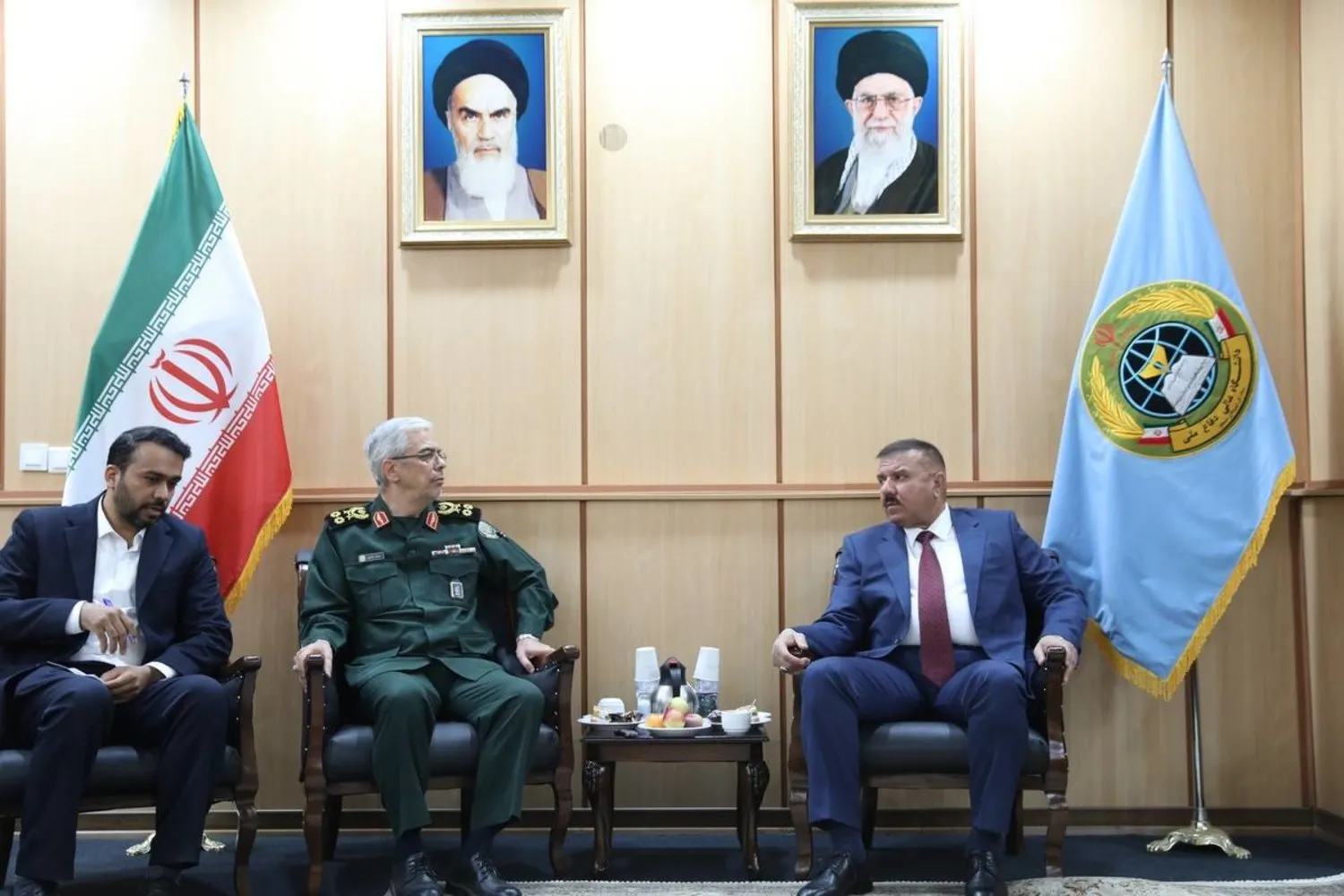Iraqi Interior Minister Abdul Amir al-Shammari discussed Sunday with Iranian officials, in Tehran, the border security agreement signed between both countries last March.
Al-Shammeri met with Iranian counterpart Ahmad Vahidi and Chief of Staff of the Iranian Armed Forces Major General Mohammad Bagheri. The talks came few days after the Iraqi National Security Advisor Qasim al-Araji had also visited Tehran.
Iran says that under the border security agreement struck with Iraq last Spring, Baghdad committed to disarm Iranian Kurdish opposition groups in Iraq's Kurdistan region, close their bases, and relocate them to other locations.
“The measures taken by Baghdad are good, but not sufficient,” Bagheri said, commenting on the Iraqi government’s relocation of anti-Iran terrorists from regions near the two countries’ joint border.
The Iranian official said Iran expected “full disarmament” of those groups, and that relocation alone would not meet the agreement’s conditions.
Also, the Iranian General Staff said in a statement carried by the official media that al-Shammari “provided clarification on the latest border developments between the two countries, especially in the Kurdistan region, the establishment of border points, and border monitoring equipment.”
Last month, Iraq has started relocating Iranian Kurdish groups from Iraq's Kurdish region frontiers with Iran to camps far from the border as part of a security agreement between Baghdad and Tehran.
On Saturday, al-Shammari held talks with his Iranian counterpart, Ahmad Vahidi, in Tehran. The Iranian Interior Ministry described the meeting as “friendly,” noting that discussions addressed bilateral issues, as well as regional and international developments.
Meanwhile in Baghdad, the Interior Ministry said al-Shammari attended in Tehran, with a high-ranking security delegation, the international conference held by the Supreme National Defense University.
Speaking at the conference, the Minister noted “the importance of continuing scientific and research cooperation to serve issues of mutual interest to friendly and fraternal States and to build a starting-point and integrated approach for military planners and strategic leaders.”
He stressed that Iraqi Ministry is keen to develop and enhance the prospects for security cooperation between the two neighboring countries.









